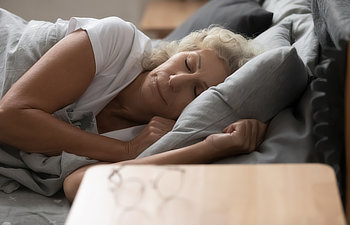
Sleep apnea is a common sleep disorder characterized by pauses in breathing or shallow breathing during sleep. While snoring and daytime fatigue are well-known symptoms of sleep apnea, there are several other, less-recognized indicators that may signal the presence of this condition. At the Atlanta Sleep Apnea Treatment Center, led by Dr. Wayne Suway, we specialize in diagnosing and treating sleep apnea, including its surprising symptoms that may often be overlooked. Here are seven lesser-known signs that could indicate you should seek evaluation for sleep apnea.
1. Morning Headaches
Waking up with a headache in the morning can be a sign of sleep apnea. Repeated interruptions in breathing during sleep can lead to decreased oxygen levels in the blood and increased carbon dioxide levels, resulting in headaches upon waking.
2. Dry Mouth or Sore Throat
Individuals with sleep apnea may experience dry mouth or a sore throat upon waking. This is often due to mouth breathing during sleep, which can occur when the airway becomes partially blocked, leading to a decrease in saliva production and dryness in the mouth and throat.
3. Frequent Nighttime Urination
Sleep apnea has been linked to nocturia, a condition characterized by frequent nighttime urination. The disrupted sleep patterns associated with sleep apnea can lead to increased urine production and the need to wake up multiple times during the night to use the bathroom.
4. Difficulty Concentrating
Sleep apnea can impair cognitive function and lead to difficulties with concentration, memory, and attention. Individuals with untreated sleep apnea may experience daytime drowsiness, brain fog and an inability to focus on tasks, which can impact work performance and quality of life.
5. Mood Changes
Sleep apnea can affect mood and emotional well-being. Irritability, mood swings, depression, and anxiety are common symptoms reported by individuals with sleep apnea. These mood changes may be related to the disruption of normal sleep patterns and the impact of sleep deprivation on brain chemistry.
6. Libido
Sleep apnea can interfere with hormone production and disrupt normal physiological processes, leading to a decrease in libido or sexual dysfunction. Studies have shown a link between sleep apnea and reduced levels of testosterone in men, which can affect sexual desire and performance.
7. Night Sweats
Excessive sweating during sleep, also known as night sweats, can be a symptom of sleep apnea. The body may sweat profusely in an attempt to regulate temperature and compensate for the stress caused by repeated episodes of breathing cessation during sleep.
If you are experiencing any of these surprising symptoms of sleep apnea, it is essential to seek evaluation and treatment from a qualified sleep specialist like Dr. Wayne Suway at the Atlanta Sleep Apnea Treatment Center. Left untreated, sleep apnea can lead to serious health complications, including high blood pressure, heart disease, stroke and diabetes. With proper diagnosis and management, individuals with sleep apnea can experience improved sleep quality, daytime alertness, and overall health and well-being. Do not let sleep apnea go undetected – contact us today to schedule a consultation and take the first step towards better sleep and a healthier life.
Posted on behalf of
1820 The Exchange SE, #600
Atlanta, GA 30339
Phone: (678) 401-7615
Mon - Thu: 8:30 AM – 5:30 PM
Closed for lunch: 12:30 PM - 1:30 PM
